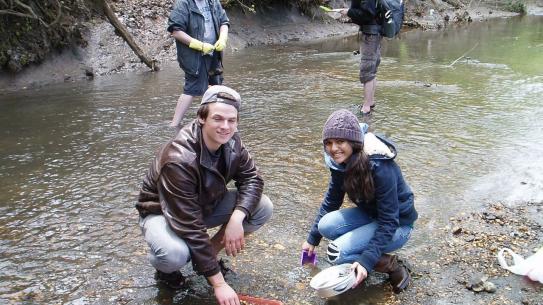A variety of students with one overarching goal: make the world more sustainable, livable, and equitable
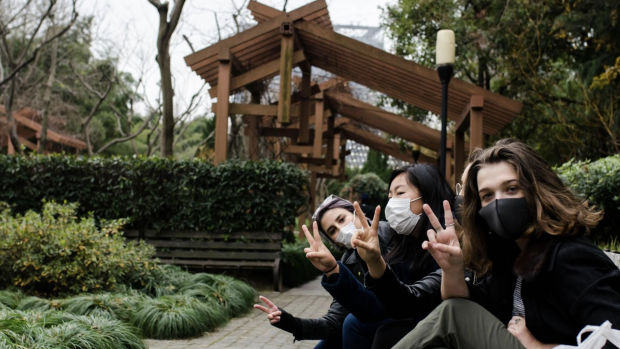
Students in the Sustainable Urban Environments program visiting Shanghai
“We’re educating a new generation of changemakers,” Alice Reznickova, the director of Tandon’s Sustainable Urban Environments program, explains. “They’ve grown up thinking about issues of climate change and environmental justice, and they are deeply invested in making a difference. That’s true of those outside our program as well; students from all different majors at Tandon — as well as students from other NYU schools — take some of the courses we offer. So even if you’re not earning a B.S. in Sustainable Urban Environments, you can work within your discipline to promote sustainability.”
Sustainable Urban Environments attracts a wide range of students, with various career paths in mind and differing areas of interest. Learn about a few of them below, in their own words.
Kylie McDowell (’21)
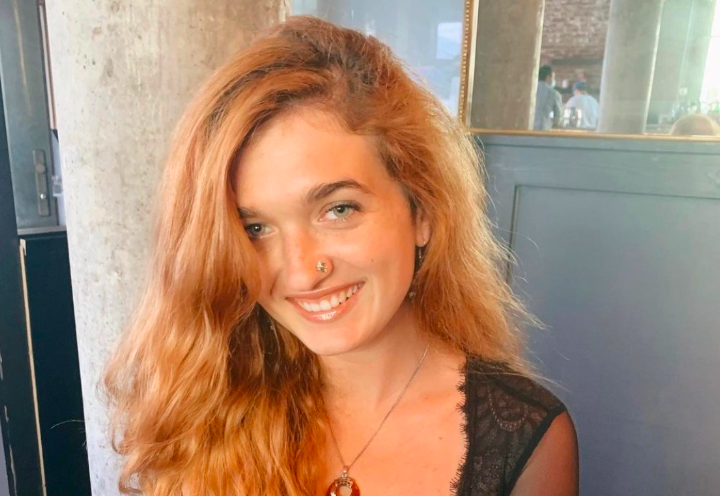
Studying Sustainable Urban Environments paved the way for me to pursue an accelerated master’s program in Urban Planning, with a focus on International Development, at NYU Wagner. That partnership with Wagner is one of the pluses of the program, and there’s a similar situation at the Center for Urban Science and Progress, where you can do your master’s program in Applied Urban Science and Informatics.
Another enormous plus for me was that I got to study in Shanghai, where I conducted a capstone project on walkability and sustainability. A lot of schools have sustainability studies programs, but choosing to do this at an engineering school definitely gives me an edge, because I have a solid knowledge of things like construction and infrastructure.
Ultimately, I want to be doing hands-on fieldwork on resilient and accessible infrastructure, preferably for an NGO. We know that hostile, inaccessible infrastructure makes for bad borders, and fixing things requires a multipronged approach, which my studies have prepared me to take.
Ricardo Sheler (’24)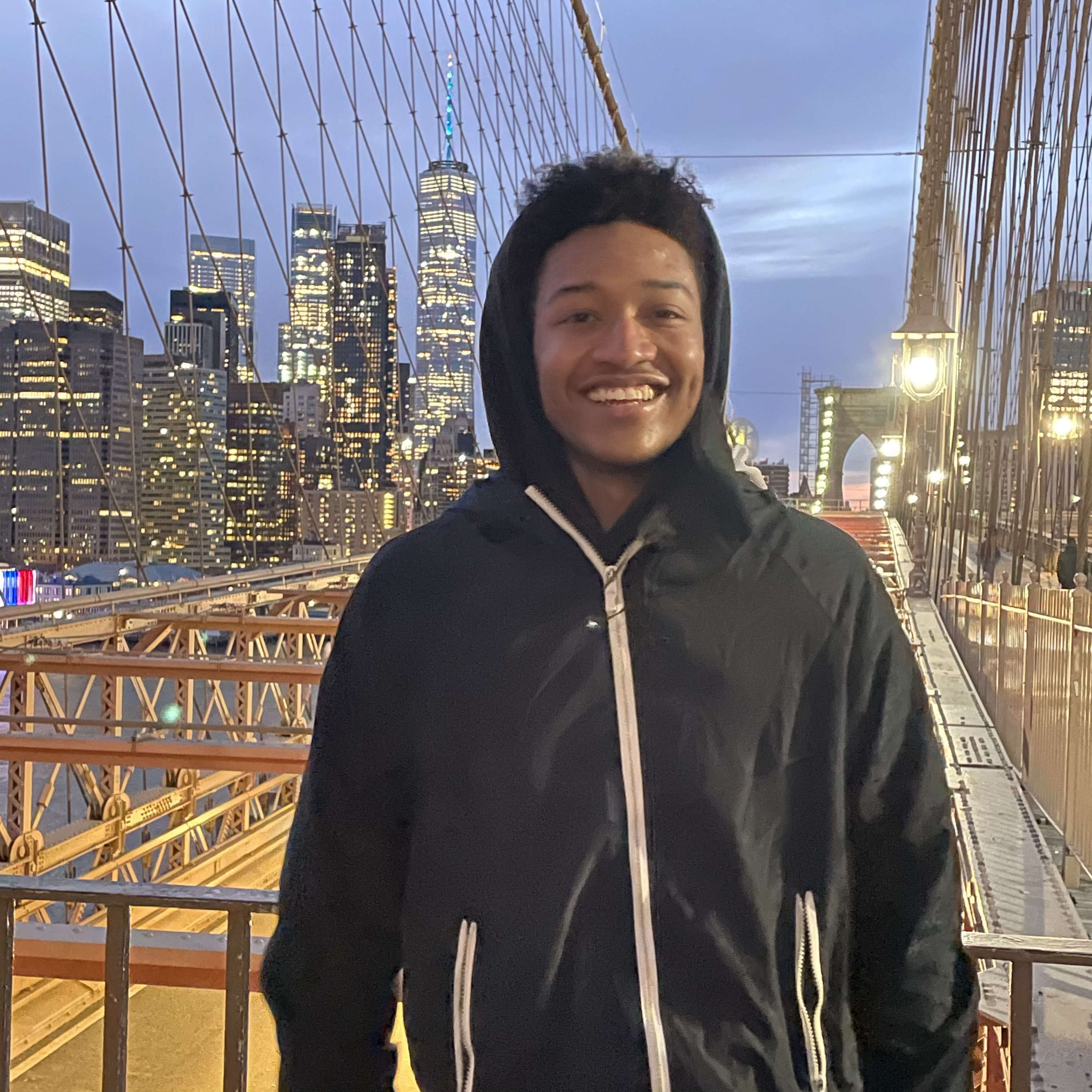
Early on I became interested in STEM, and in high school, I captained the robotics team, but as I matured, I developed a love for history and politics, getting involved in model Congress as well. I really wanted to find a way to balance all my interests, but I wasn’t sure how, and I initially took a haphazard approach to applying to colleges. I thought I wanted to study mechanical engineering here or history there. It all seemed so overwhelming, and I had so many new factors to consider because of the pandemic. So, I figured that I’d ultimately try to “minimize risk” and decide based on location and familiarity; as a D.C. native, I internally settled on studying “Undecided” Engineering at the University of Maryland.
Luckily before it was too late, I stumbled upon the Sustainable Urban Environments program at NYU Tandon, and I feel like I could not have made a more awesome choice. Other schools have sustainability courses, but here, they’re truly interdisciplinary, blending the technical and scientific with the immense sociological contexts integral to understanding our world. Our director, Alice Reznickova, has a way of expanding your thinking, investigating commonly held assumptions, and making you curious about things you never thought to be curious about before. With great leadership and a location brimming with opportunities for sustainability initiatives, I know the ceiling is very high as far as where the program can take us.
I’ve personally felt the effects of poor urban planning, so the idea of advocacy to make things better gets me out of bed each day. Not to diminish other issues, but fundamental to them all is having a healthy planet to live on. Past generations have dropped the ball — they’ve ‘hot-potatoed’ environmental issues down to their descendants — and we’ve got to stop doing that or decades from now we’ll be in an even more dire situation. In the future, I’m considering graduate school to conduct relevant research, going into urban planning or policy advising — I might even run for local office one day to help end the cycle.
Melanie Triplett (’21)
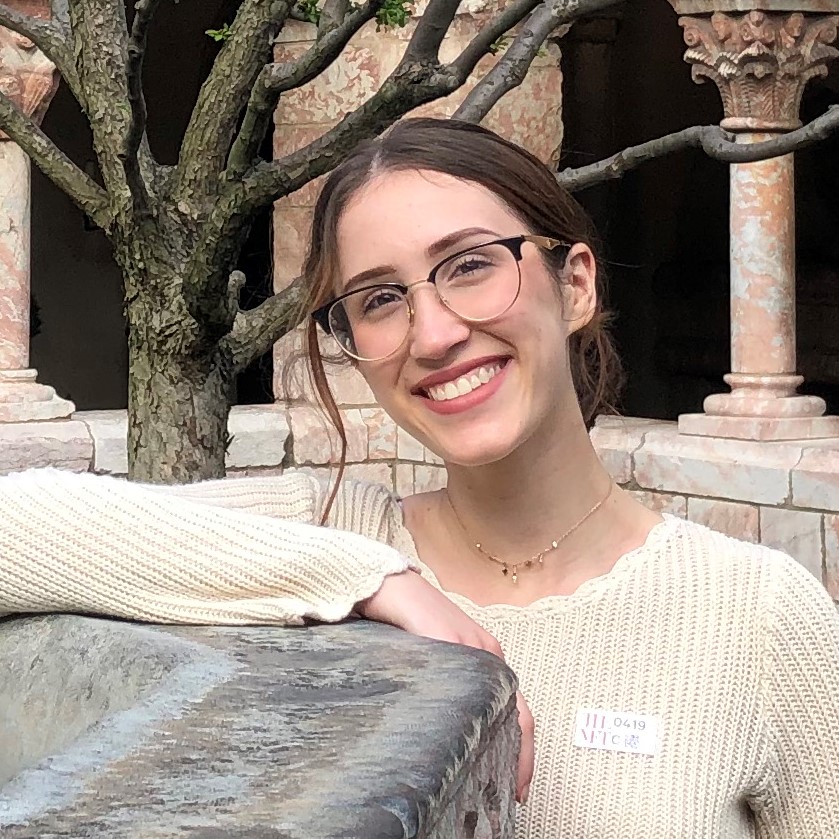
I originally started out as a civil engineering major, but I switched to Sustainable Urban Environments because I like the mixture of topics, and I love how small our cohort is, because that allows you to get to know everyone very well. With that said, many of the elective courses on topics like fossil fuels and resilience are open to people from other majors, so you get to meet them too.
I like how the major evolves as the general public conversation evolves; we’re all paying a lot more attention to issues of environmental and social justice, while at the same time looking at the historical perspective of how we got to where we are.
My capstone project examines green gentrification — which happens when otherwise desirable features like bike lanes and waterfront parks drive costs up — and how to fight that through community participation. Doing the project, along with other experiences I’ve had at Tandon, such as serving as the undergraduate representative on the Green Grant committee, are good preparation for forging a career path. I feel that I could go into public policy, for example, or corporate sustainability; even banks are now concerned about their supply chains and carbon footprints.
Kaylynn Yamanashi (’23)
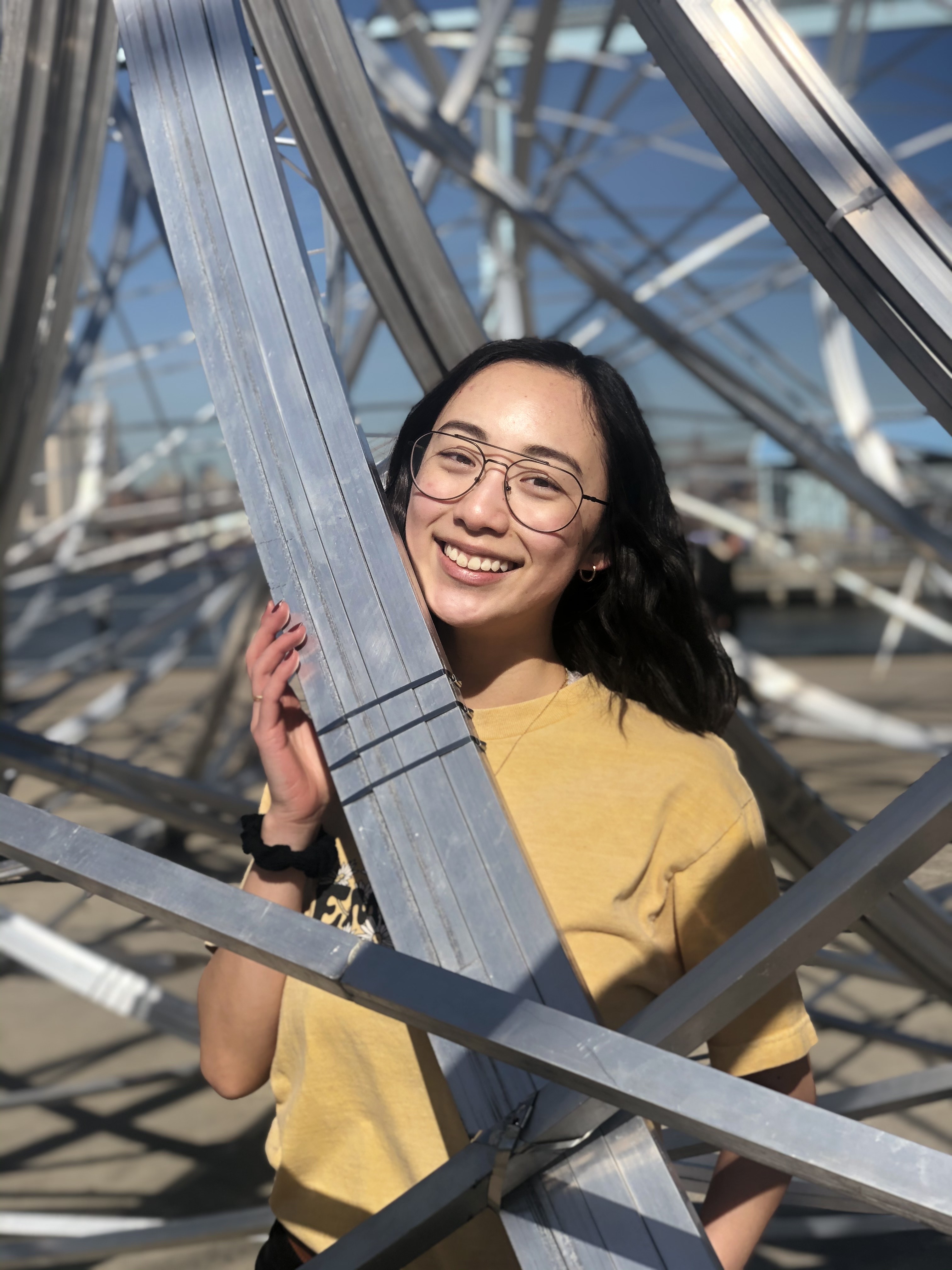
Sustainable Urban Environments provides the best of both worlds, because I love the technical aspects of topics like GIS and artificial intelligence, and I want to use my skills for the social good. A course like the Ethics of AI epitomizes that. Another course that really widened my horizons and covered a lot of things important to me was Global Perspectives on Urban Sustainability with Professor Manohar Patole.
This year I’m very excited to take part in a long-term Vertically Integrated Project being led by Alice Reznickova. It’s called Solutions for Sustainable Futures, and we’ll be examining issues like food insecurity and food sovereignty, which has to do with the rights people have to control how they’re food is produced and distributed. We’re in the research stage right now, and Professor Reznickova has said there may be the opportunity for international collaboration.
Ultimately, I think I see myself pursuing a career at a city agency. I was born in Los Angeles and love New York, and wherever the future takes me, I definitely want to contribute to healthier, more sustainable urban areas.
An alum weighs in
Tamara Fou ('18, ‘20)
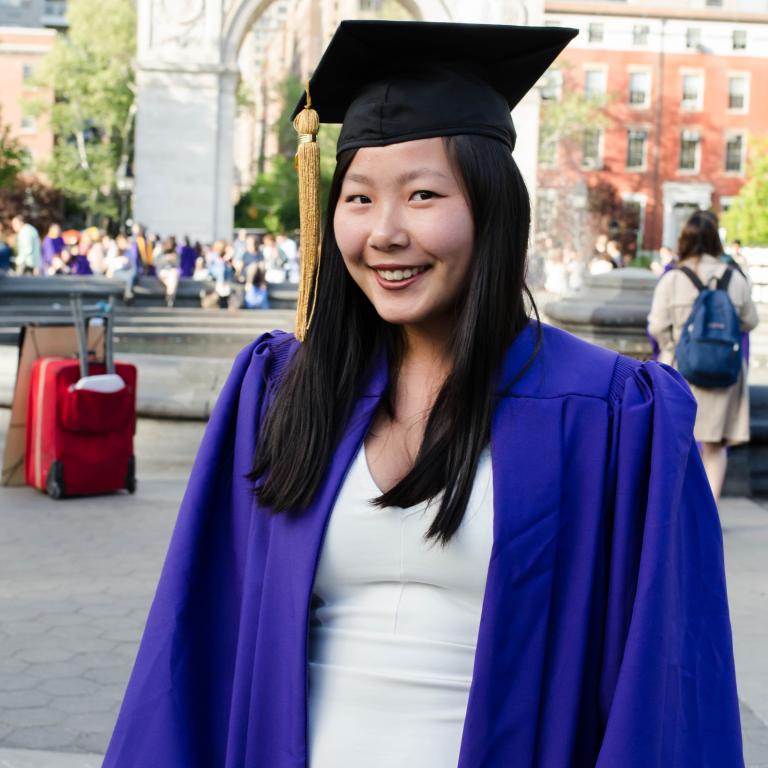
I completed the combined bachelor’s and master’s program with NYU Wagner; I was in the pilot of the dual-degree program, and I think anyone interested in public service, urban planning, or policy should at least consider that option. It worked out very well for me.
I’m now working as an assistant city planner in Houston. I wanted to work in a big city, and Houston is the fourth-most-populous in the U.S.
I will admit that my timing could have been better. I was just settling in and learning the relevant ordinances and land-use regulations when debilitating winter storms hit the state. That was my welcome.
Still, I’m thrilled to be doing a job I think my degrees prepared me well for. I started out at NYU London focusing on architecture and urban design, and when my advisor got to know me, she told me to consider NYU Tandon’s Sustainable Urban Environments program. It was absolutely the right fit for me; you can initiate ideas and the faculty listens, such as the time my cohort wrote a proposal that resulted in us receiving a grant to conduct research in Shanghai.
One last thing — a shout-out to Tandon’s Krysta Battersby, the department’s administrative director, who is the warmest, most-helpful person anyone could meet.
